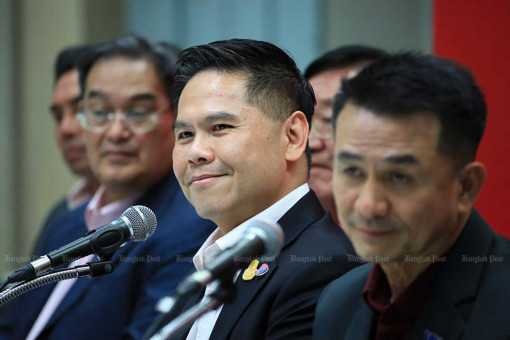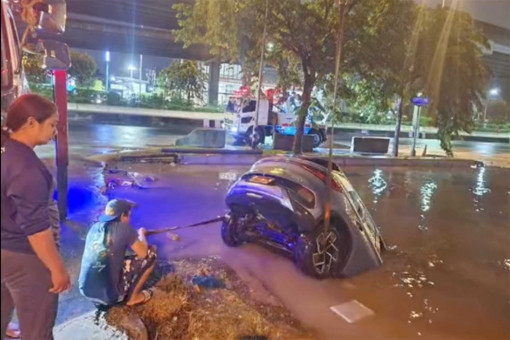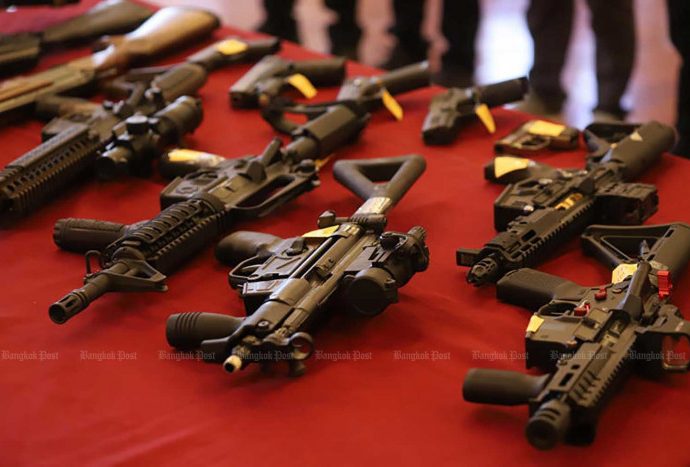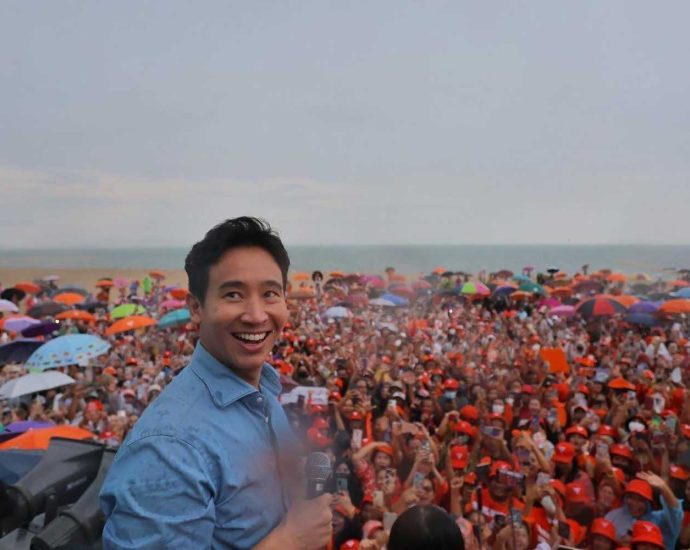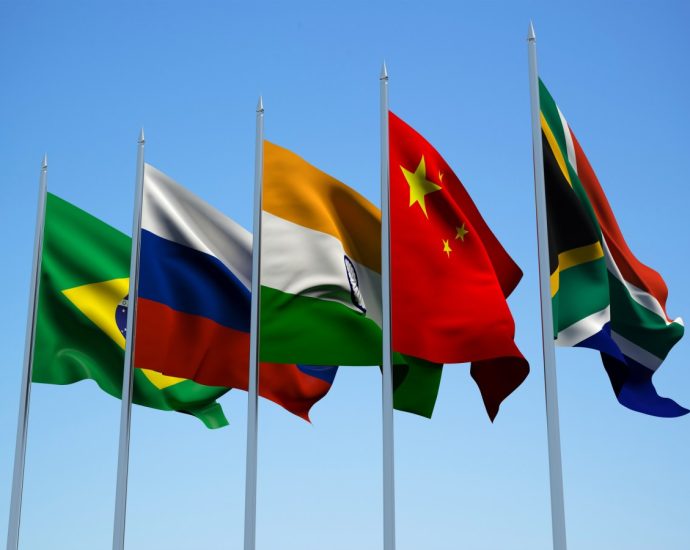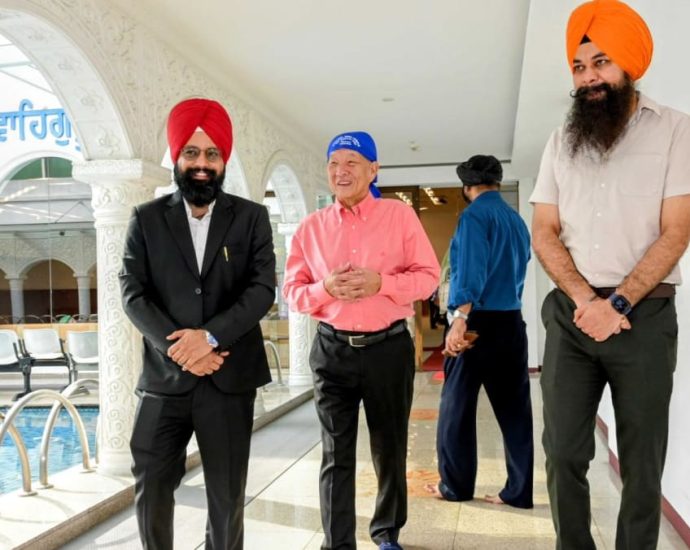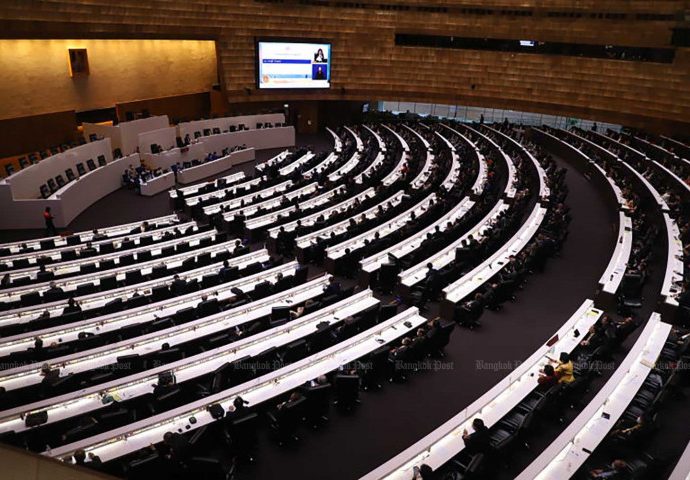Pheu Thai told again: kick Move Forward out of coalition
PUBLISHED : 23 Jul 2023 at 17:54
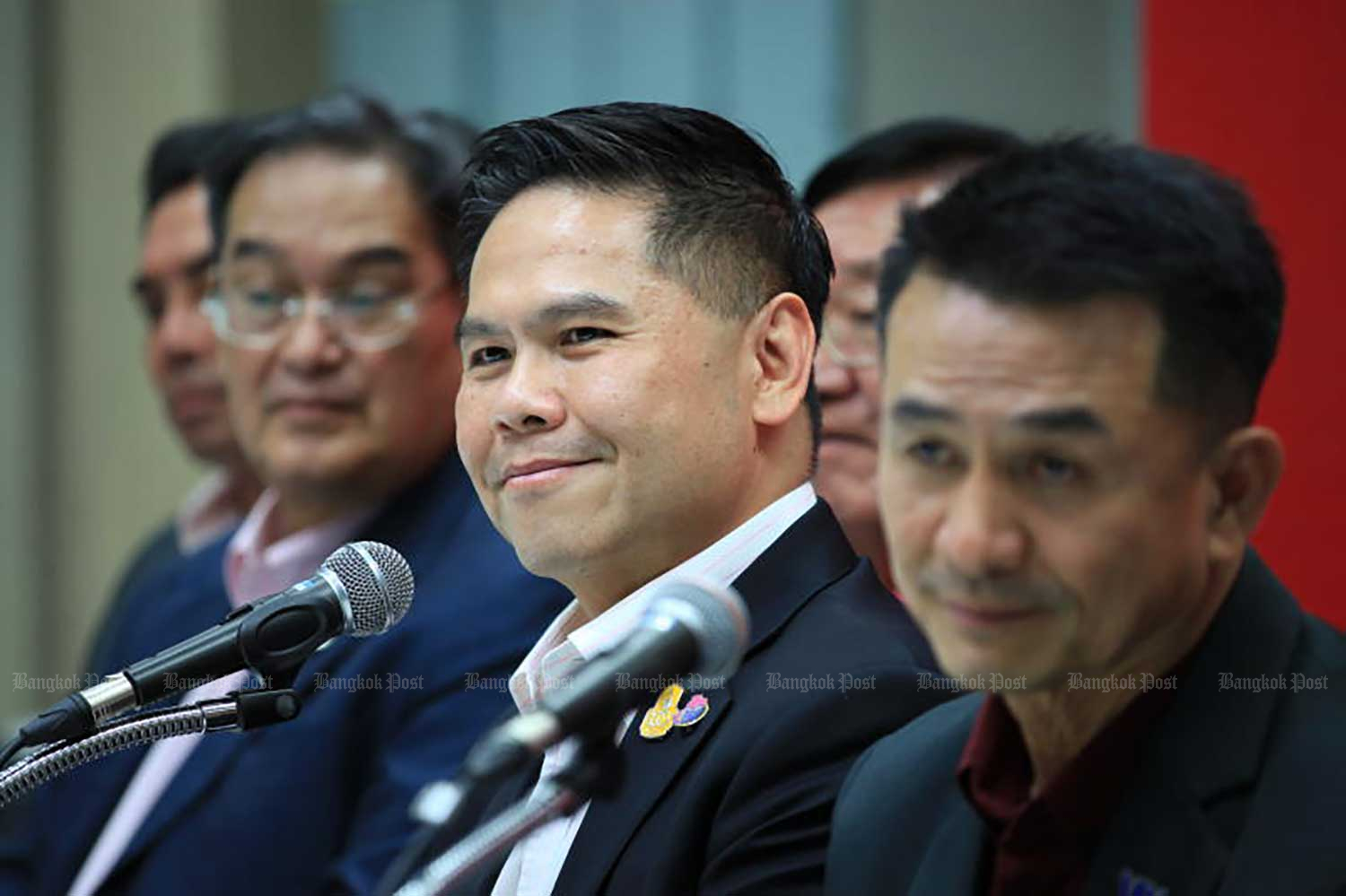
The leader of the Chartthaipattana Party on Sunday told the Pheu Thai Party (PTP) that is taking the lead in forming the next government that it will not vote for a prime ministerial candidate from Pheu Thai if its coalition includes a party that wants to change the lese majeste (royal insult) law.
Chartthaipattana Party leader Varawut Silpa-archa informed a press conference of his party’s standpoint after meeting key Pheu Thai figures at PTP headquarters on Sunday. He apparently referred to the election-winning Move Forward Party (MFP) which has stood firm on changing the lese majeste law or Section 112 of the Criminal Code.
The MFP won 151 House seats in the May 14 general election. It teamed up with Pheu Thai, which came second with 141 House seats, and six other parties to attempt the formation of the next government. Their coalition had 312 of the 500 House seats.
But Move Forward failed to win a majority vote from the elected House and the military-appointed Senate for the premiership of its sole prime ministerial candidate and leader Pita Limjaroenrat. MFP recently decided to let Pheu Thai nominate its prime ministerial candidate and take the lead in forming the next government.
Pheu Thai has discussed forming a government with parties outside its eight-party coalition alliance, meeting the Bhumjaithai, United Thai Nation and Chartpattanakla parties. Bhumjaithai and United Thai Nation insisted that they will not support Pheu Thai’s government formation if its coalition includes MFP.
Pheu Thai then proceeded to hold talks with Chartthaipattana, which holds 10 House seats, on Sunday.
After the meeting, Mr Varawut said his party would vote for a prime ministerial candidate from Pheu Thai as long as no party in its alliance intended to amend the lese majeste law.
“If any political party shares the same thinking with Chartthaipattana, to leave the (lese majeste) law intact and have positive attitudes and respect for the (royal) institution, then we can work together. If there is any political party with a different standpoint, we will work separately,” Mr Varawut said.
“If Pheu Thai has a similar direction with Chartthaipattana about the institution and Section 112 and if there is a prime ministerial candidate from Pheu Thai, we, Chartthaipattana, will be willing to give support. But Pheu Thai must not have any party with a different concept from ours,” Mr Varawut said.
On the same occasion, Pheu Thai leader Cholnan Srikaew said the eight-party coalition alliance assigned Pheu Thai to gather support for government formation with other political parties, and was seeking their opinions.
Dr Cholnan denied that Pheu Thai was inviting other parties outside its alliance to join its coalition and would exclude MFP from the alliance, sending the election-winning party to the opposition.
Probe after ‘no warning signs’ Bangkok ditch car plunge
PUBLISHED : 23 Jul 2023 at 16:54

An investigation is being conducted into an accident in which a car fell into a ditch while turning into Soi 28 off the Vibhavadi Rangsit highway in Bangkok on Friday.
Sawang Buranathanakit, director of the Road Construction Office 1 of the Highway Department, said that from an initial investigation the accident occurred on a road branching off Vibhavadi Rangsit (Highway 31) into Soi 28 where a roadside ditch was being dredged under a development project.
He said all contractors of the Highway Department’s development projects have been told to strictly take safety measures by putting up warning and traffic signs as well as placing barriers for motorists to be careful while passing areas under construction to prevent accidents.
The accident on Soi 28 off Vibhavadi Rangsit highway happened in heavy rain and the road surface was inundated. An investigation was being conducted to determine what caused the accident or whether there were any mistakes to prevent a recurrence of it, Mr Sawang said.
He said the Highway Department had told the project contractor to contact the owner of the car involved in the accident to compensate for the damage.
The accident was brought to public attention after the driver of the car posted on TikTok a video clip of the area after the accident.
He said there were no signs to tell motorists to be careful while passing an area under construction.
The man said he narrowly escaped death and felt very sad seeing his beloved new EV sink into the water before his eyes.
UK band The 1975 nix Indonesia, Taiwan gig after Malaysia LGBTQ uproar
“The 1975 regret to announce that their forthcoming shows in Jakarta and Taipei will no longer be going ahead as planned,” the band said in a statement Sunday on the We The Fest Instagram page. “The band never take the decision to cancel a show lightly and had been eagerlyContinue Reading
Illegal guns seized, suspects arrested in nationwide crackdown

PUBLISHED : 23 Jul 2023 at 15:52
Police have seized large quantities of illegal guns and ammunition and arrested 966 suspects in a month-long nationwide crackdown that began on July 1, deputy police chief Pol Gen Torsak Sukwimol said on Sunday.
As of July 21, the police had raided 1,658 targets nationwide, arrested 966 suspects, seized 911 illegal guns, 44,540 rounds of assorted ammunition, two explosives and 6,239 methamphetamine pills, he said.
In one of the raids, police from Khao Phanom district, Krabi province, laid siege to a house in tambon Na Khao which belonged to a suspect called Boom, 28, who was wanted under three warrants on drug and attempted murder charges.
The suspect fled on a motorcycle from the back of the house. When the police followed, he opened fire at them with a gun, Pol Gen Torsak said. The suspect was killed in an ensuing exchange of fire.
Found by his side were a 9mm Mauser pistol, one M67 hand grenade and two smoke grenades.
The operation targeting illegal weapons, gunmen for hire and the illegal weapon trades is being conducted from July 1-30 under the supervision of assistant police chief Pol Lt Gen Samran Nualma – with information from the Metropolitan Police Bureau, Provincial Police Regions 1-9, Central Investigation Bureau, Narcotic Suppression Bureau, Tourist Police Bureau, Immigration Police Bureau, Cyber Crime Investigation Bureau and Border Patrol Police.
Pita: Move Forward ‘keeps promise with voters, won’t quit coalition’
PUBLISHED : 23 Jul 2023 at 15:20

The Move Forward Party (MFP) will not quit the eight-party coalition it put together; otherwise, it will be considered to have let people down, its leader Pita Limjaroenrat said on Sunday.
During his trip to Chanthaburi province, reporters asked Mr Pita to comment on whether several other parties in the alliance were apparently trying to convince his party to sacrifice itself and leave the coalition to pave the way for the formation of the next government.
“A sacrifice would mean to dump 14 million votes and disappoint people. Now promises and principles must be kept, rather than telling a party to sacrifice itself,” Mr Pita said, referring to the 14 million votes his party received in the May 14 general election.
“If we keep the promises we have made with people, no one will have to make a sacrifice,” he said.
Mr Pita acknowledged that the Pheu Thai Party had offered talks with the Palang Pracharath and United Thai Nation (UTN) parties.
Reporters asked if the meetings were intended to pressure MFP to leave the eight-party alliance. Mr Pita said that if the two latter parties join the coalition, MFP could not stay.
“As far as I know, the parties were invited only for an exchange of opinions. I will wait for an explanation from the Pheu Thai Party… I confirm that I still have trust and confidence in the Pheu Thai Party,” Mr Pita said.
He also acknowledged the meeting of Pheu Thai with Bhumjaithai, Chartpattanakla and UTN which saw MFP as their obstacle to government formation.
Reporters asked if the stance was aimed at pressuring MFP to call off its government formation efforts. Mr Pita said if the eight coalition allies remained united, there would not be any pressure.
Asked how MFP would respond if its seven coalition allies wanted it to back down on its efforts to amend the lese majeste law, Mr Pita said he would then listen to the details of the allies’ standpoints on the law.
Mr Pita said his morale was good and would we maintained by his trips to provinces to support the work of MFP MPs.
He also said his legal team was preparing defence in petitions against his eligibility for political office and Move Forward had not made any mistakes in failing to win prime ministerial and House speaker seats.
Following a decades-long tradition of court rulings trumping the ballot box, one legal petition has already resulted in the Constitutional Court suspending Mr Pita’s MP role.
Why capitalism is leaving the US, in search of profit

Early US capitalism was centered in New England. After some time, the pursuit of profit led many capitalists to leave that area and move production to New York and the mid-Atlantic states. Much of New England was left with abandoned factory buildings and depressed towns evident to this day.
Eventually employers moved again, abandoning New York and the mid-Atlantic for the Midwest. The same story kept repeating as capitalism’s center relocated to the Far West, the South, and the Southwest. Descriptive terms like “Rust Belt,” “deindustrialization,” and “manufacturing desert” increasingly applied to ever more portions of US capitalism.
So long as capitalism’s movements stayed mostly within the US, the alarms raised by its abandoned victims remained regional, not becoming a national issue yet. Over recent decades, however, many capitalists have moved production facilities and investments outside the US, relocating them to other countries, especially to China.
Ongoing controversies and alarms surround this capitalist exodus. Even the celebrated high-tech sectors, arguably US capitalism’s only remaining robust center, have invested heavily elsewhere.
Since the 1970s, wages were far lower abroad and markets were growing faster there too. Ever more US capitalists had to leave or risk losing their competitive edge over those capitalists (European and Japanese, as well as US) who had left earlier for China and were showing stunningly improved profit rates.
System rewards the already rich
Beyond China, other Asian, South American and African countries also provided incentives of low wages and growing markets, which eventually drew US capitalists and others to move investments there.
Profits from those capitalists’ movements stimulated more movements. Rising profits flowed back to rally US stock markets and produced great gains in income and wealth.
That chiefly benefited the already rich corporate shareholders and top corporate executives. They in turn promoted and funded ideological claims that capitalism’s abandonment of the US was actually a great gain for American society as a whole.
Those claims, categorized under the headings of “neoliberalism” and “globalization,” served neatly to hide or obscure one key fact: Higher profits mainly for the richest few was the chief goal and the result of capitalists abandoning the US.
Neoliberalism was a new version of an old economic theory that justified capitalists’ “free choices” as the necessary means to achieve optimal efficiency for entire economies. According to the neoliberal view, governments should minimize any regulation or other interference in capitalists’ profit-driven decisions.
Neoliberalism celebrated “globalization,” its preferred name for capitalists’ choosing specifically to move production overseas. That “free choice” was said to enable “more efficient” production of goods and services because capitalists could tap globally sourced resources.
The point and punchline flowing from exaltations of neoliberalism, capitalists’ free choices, and globalization were that all citizens benefited when capitalism moved on. Excepting a few dissenters (including some unions), politicians, mass media and academicians largely joined the intense cheerleading for capitalism’s neoliberal globalization.
The economic consequences of capitalism’s profit-driven movement out of its old centers (Western Europe, North America and Japan) brought capitalism there to its current crisis.
Advantage: China
First, real wages stagnated in the old centers. Employers who could export jobs (especially in manufacturing) did so. Employers who could not (especially in service sectors) automated them.
As US job opportunities stopped rising, so did wages. Since globalization and automation boosted corporate profits and stock markets while wages stagnated, capitalism’s old centers exhibited extreme widening of income and wealth gaps. Deepening social divisions followed and culminated in capitalism’s crisis now.
Second, unlike many other poor countries, China possessed the ideology and organization to make sure that investments made by capitalists served China’s own development plan and economic strategy.
China required the sharing of incoming capitalists’ advanced technologies (in exchange for those capitalists’ access to low-wage Chinese labor and rapidly expanding Chinese markets). The capitalists entering the Beijing markets were also required to facilitate partnerships between Chinese producers and distribution channels in their home countries.
China’s strategy to prioritize exports meant that it needed to secure access to distribution systems (and thus distribution networks controlled by capitalists) in its targeted markets. Mutually profitable partnerships developed between China and global distributors such as Walmart.
Beijing’s “socialism with Chinese characteristics” included a powerful development-focused political party and state. Conjointly they supervised and controlled an economy that mixed private with state capitalism.
In that model, private employers and state employers each direct masses of employees in their respective enterprises. Both sets of employers function subject to the strategic interventions of a party and government determined to achieve its economic goals.
As a result of how it defined and operated its socialism, China’s economy gained more (especially in GDP growth) from neoliberal globalization than Western Europe, North America and Japan did. China grew fast enough to compete now with capitalism’s old centers.
Shortsighted US response
The decline of the US within a changing world economy has contributed to the crisis of US capitalism. For the US empire that arose out of World War II, China and its BRICS allies (Brazil, Russia, India and South Africa) represent its first serious, sustained economic challenge.
The official US reaction to these changes so far has been a mix of resentment, provocation and denial. Those are neither solutions to the crisis nor successful adjustments to a changed reality.
Third, the Ukraine war has exposed key effects of capitalism’s geographic movements and the accelerated economic decline of the US relative to the economic rise of China. Thus the US-led sanctions war against Russia has failed to crush the ruble or collapse the Russian economy.
That failure has followed in good part because Russia obtained crucial support from the alliances (BRICS) already built around China. Those alliances, enriched by both foreign and domestic capitalists’ investments, especially in China and India, provided alternative markets when sanctions closed off Western markets to Russian exports.
Earlier income and wealth gaps in the US, worsened by the export and automation of high-paying jobs, undermined the economic basis of that “vast middle class” that so many employees believed themselves to be part of.
Over recent decades, workers who expected to enjoy “the American dream” found that increased costs of goods and services led to the dream being beyond their reach. Their children, especially those forced to borrow for university, found themselves in a similar situation or in a worse one.
Fighting back
Resistances of all sorts arose (unionization drives, strikes, left and right “populisms”) as working-class living conditions kept deteriorating. Making matters worse, mass media celebrated the stupefying wealth of those few who profited most from neoliberal globalization.
In the US, phenomena like former president Donald Trump, Vermont’s independent Senator Bernie Sanders, white supremacy, unionization, strikes, explicit anti-capitalism, “culture” wars, and frequently bizarre political extremism reflect deepening social divisions.
Many in the US feel betrayed after being abandoned by capitalism. Their differing explanations for the betrayal exacerbate the widely held sense of crisis in the nation.
Capitalism’s global relocation helped raise the total GDP of the BRICS nations (China + allies) well above that of the Group of Seven (US + allies). For all the countries of the Global South, their appeals for development assistance can now be directed to two possible respondents (China and the US), not just the one in the West.
When Chinese entities invest in Africa, of course their investments are structured to help both donors and recipients. Whether the relationship between them is imperialist or not depends on the specifics of the relationship, and its balance of net gains.
Those gains for the BRICS will likely be substantial. Russia’s adjustment to Ukraine-related sanctions against it not only led it to lean more on BRICS but likewise intensified the economic interactions among BRICS members.
Existing economic links and conjoint projects among them grew. New ones are fast emerging. Unsurprisingly, additional countries in the Global South have recently requested BRICS membership.
Capitalism has moved on, abandoning its old centers and thereby pushing its problems and divisions to crisis levels. Because profits still flow back to the old centers, those there gathering the profits delude their countries and themselves into thinking all is well in and for global capitalism. Because those profits sharply aggravate economic inequalities, social crises there deepen.
For example, the wave of labor militancy sweeping across nearly all US industries reflects anger and resentment against those inequalities. The hysterical scapegoating of various minorities by right-wing demagogues and movements is another reflection of the worsening difficulties.
Yet another is the growing realization that the problem, at its root, is the capitalist system. All of these are components of today’s crisis.
Even in capitalism’s new dynamic centers, a critical socialist question returns to agitate people’s minds. Is the new centers’ organization of workplaces – retaining the old capitalist model of employers vs employees in both private and state enterprises – desirable or sustainable?
Is it acceptable for a small group, employers, exclusively and unaccountably to make most key workplace decisions (what, where, and how to produce and what to do with the profits)?
That is clearly undemocratic. Employees in capitalism’s new centers already question the system; some have begun to challenge and move against it. Where those new centers celebrate some variety of socialism, employees will more likely (and sooner) resist subordination to the residues of capitalism in their workplaces.
This article was produced by Economy for All, a project of the Independent Media Institute, which provided it to Asia Times.
Singapore’s Loh Kean Yew loses to Denmark’s Anders Antonsen in Korea Open final
SINGAPORE: Loh Kean Yew’s strong run at the Korea Open ended with a loss to Denmark’s world No 16 Anders Antonsen in the men’s singles final on Sunday (Jul 23). At the Jinnam Stadium in Yeosu, the eighth-ranked Loh fell 21-11, 11-21, 19-21 in a see-saw clash. Loh was gunningContinue Reading
‘There’s a difference between the establishment and the ruling party’: Ng Kok Song on being non-partisan

Mr Ng announced his intention to run for the Singapore presidency on Jul 19. The 75-year-old is the third presidential hopeful to throw his hat into the ring.
He retired from GIC – Singapore’s sovereign wealth fund – in 2013 after 27 years with the organisation. He was appointed GIC’s first group chief investment officer in 2007, a post he held until he retired.
Mr Ng started his career as an investment analyst in the Ministry of Finance in 1970, before moving to the Monetary Authority of Singapore when it was formed in 1971 and took over the function of managing Singapore’s reserves.
There are many people in the public service who serve at very high levels and interact with ministers, he said, speaking to journalists during a visit to the Central Sikh Temple along Towner Road.
“Especially because we have had only one ruling party all these years … there’s this perception that if you are in the public service, you’re part of the ruling party. But that’s wrong,” he said.
“There’s a difference between the establishment and the ruling party. I have never belonged to any political party. I have never belonged to the People’s Action Party.”
Most people say PM’s selection will cause division in Thai society: Nida Poll

PUBLISHED : 23 Jul 2023 at 10:06
A majority of people believe the ongoing process of selecting the prime minister in parliament will cause division in Thai society, according to an opinion survey by the National Institute of Development Administration, or Nida Poll.
The poll was conducted on July 11-12 by telephone interviews with 1,310 people aged 18 and over of various levels of education, occupations and incomes throughout the country to compile their opinions on whether or not they believed the ongoing selection of the prime minister in parliament will further divide people in Thai society.
In responding to this question, 37.10% said they highly believed this would happen, while 26.64% said the chance of this happening was moderate. On the other side, 20.15% did not think this would happen at all and 16.03% did not quite believe this would happen. The rest, 0.08% had no answer or were not interested.
Asked for how long they thought the new government would last, 60.53% believed it would complete the four-year term; 15.34% said it would last about two years; 11.91% about one year; 6.95% less than six months; 3.28% about three years; and 1.99% had no answer or were not interested.
Suan Dusit Rajabhat University also carried out a survey online during July 20-22 on 1,809 people throughout the country to gauge their opinions on “conflicts in the selection of the prime minister.”
Asked to comment on conflicts in the selection of the prime minister, with each respondent allowed to give more than one answer, 71.73% believed people in society would be further divided; 67.90% said the conflicts would cause people to feel tired of politics; and 62.23% said the conflicts would affect the economy and the people’s livelihood.
Asked what they thought are the causes of the conflicts, 74.21% said political parties are overly obsessed with fighting for power and interests; 63.76% put the blame on senators; and 62.42% said some parties have no respect on the people’s voice and do not concede defeat.
Most think PM selection process will divide society: opinion polls
PUBLISHED : 23 Jul 2023 at 10:06

A majority of people believe the ongoing process of selecting the prime minister in parliament will cause division in Thai society, according to two opinion surveys.
The first, by the National Institute of Development Administration, or Nida Poll, was conducted on July 11-12 by telephone interviews with 1,310 people aged 18 and over of various levels of education, occupations and incomes throughout the country.
Asked whether the parliamentary voting procedure would divide society, 37.10% said they strongly believed this would be the case, while 26.64% said the chance of this happening was moderate. On the other side, 20.15% did not think this would happen at all and 16.03% doubted this would happen. The rest, 0.08% had no answer or were not interested.
Asked for how long they thought the new government would last, 60.53% believed it would complete the four-year term; 15.34% said it would last about two years; 11.91% about one year; 6.95% less than six months; 3.28% about three years; and 1.99% had no answer or were not interested.
Suan Dusit Rajabhat University also carried out a survey online during July 20-22 on 1,809 people throughout the country to gauge their opinions on “conflicts in the selection of the prime minister”.
With each respondent allowed to give more than one answer, 71.73% believed society would be further divided; 67.90% said the conflicts would cause people to feel tired of politics; and 62.23% said the conflicts would affect the economy and people’s livelihoods.
Asked what they thought the causes of the conflicts were, 74.21% said political parties are overly obsessed with fighting for power and interests; 63.76% put the blame on senators; and 62.42% said some parties have no respect for the people’s voice and do not concede defeat.

